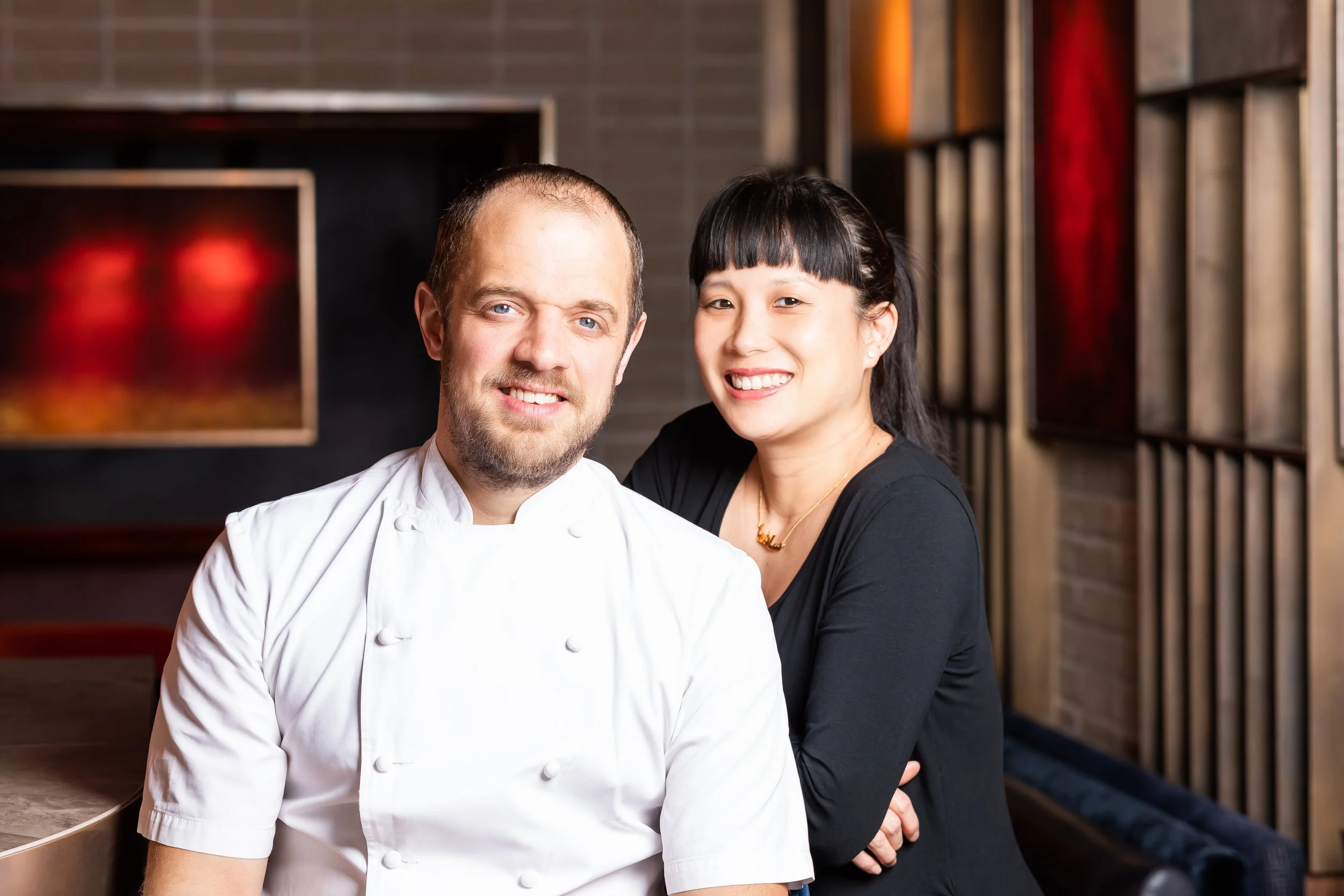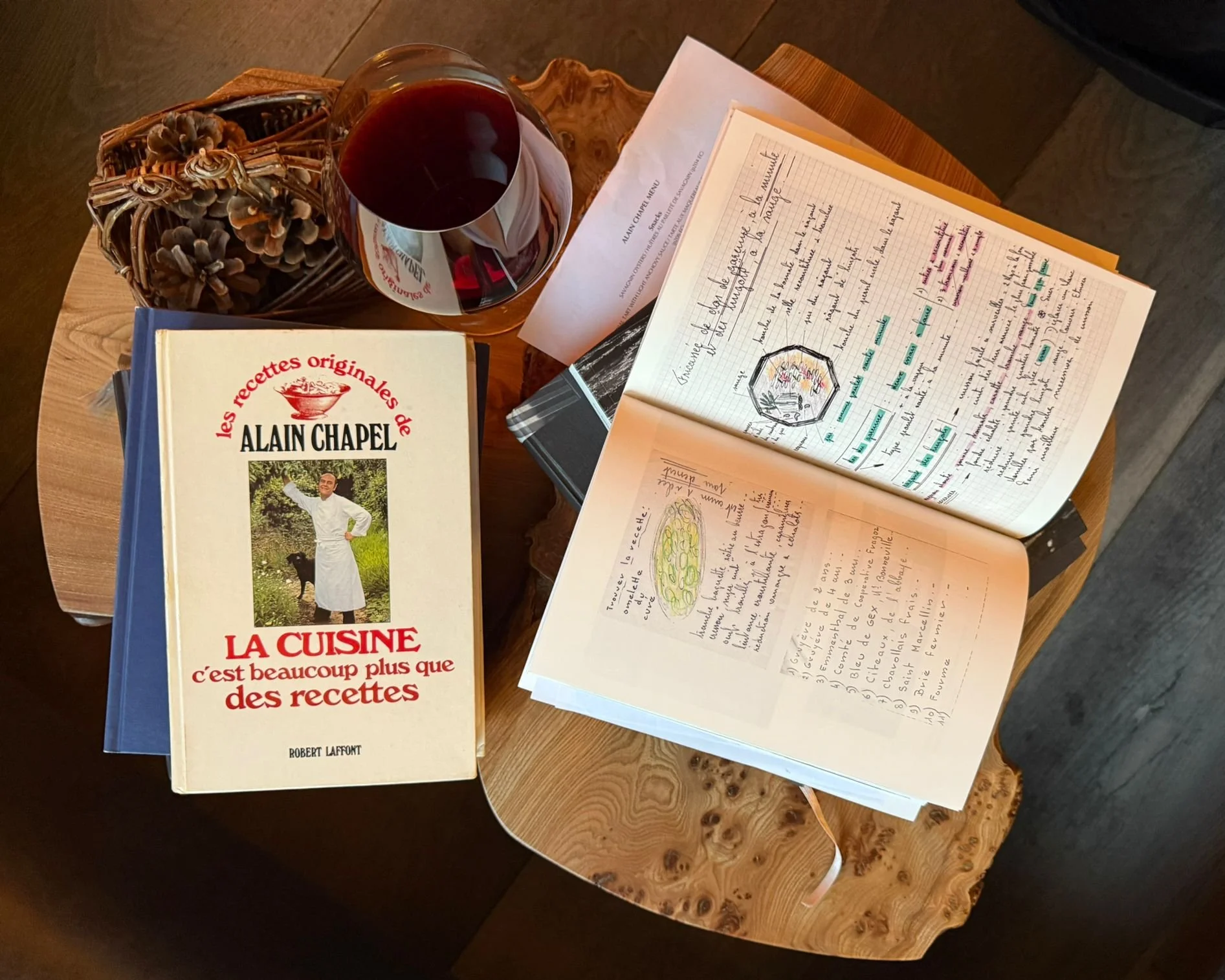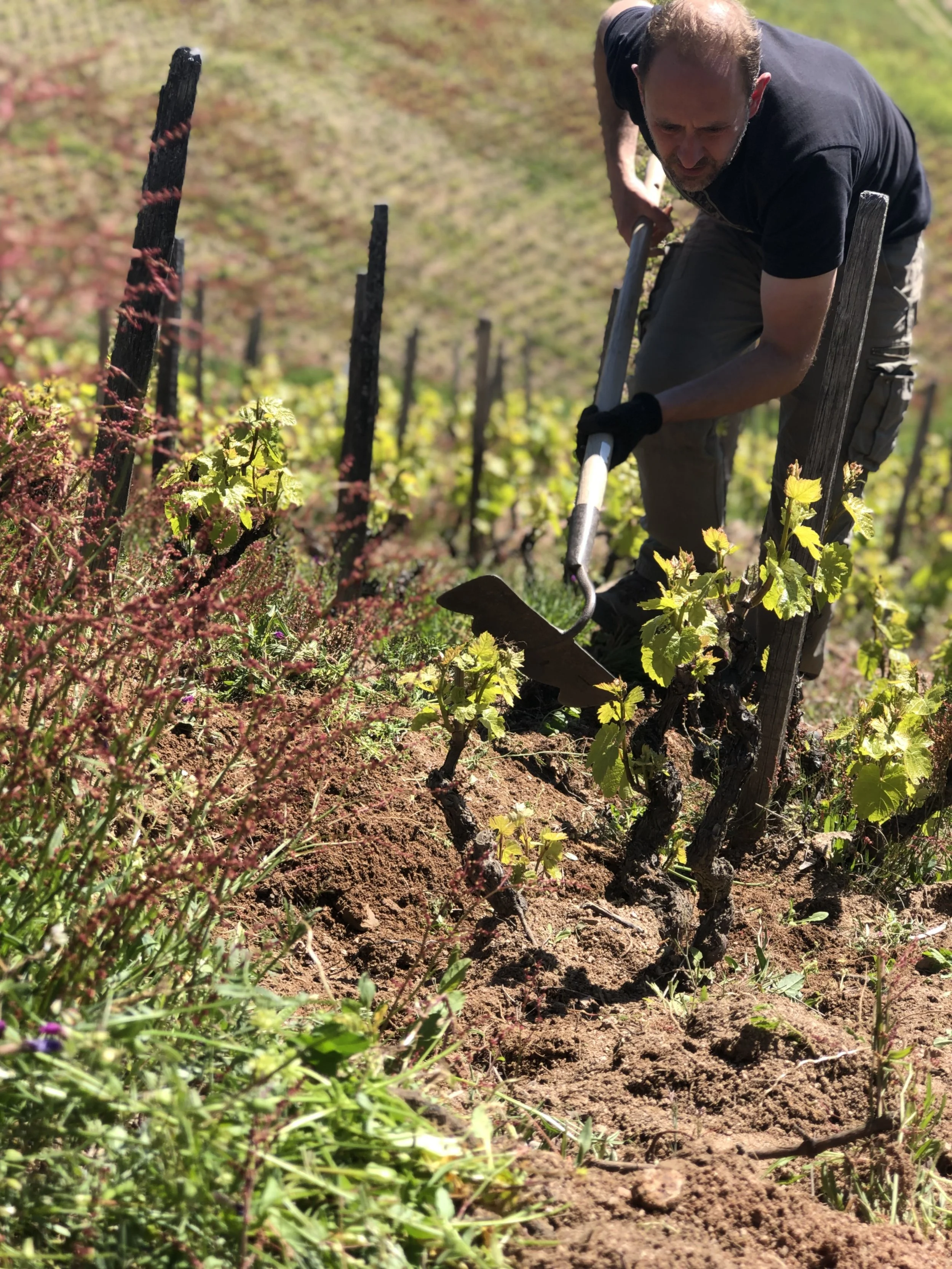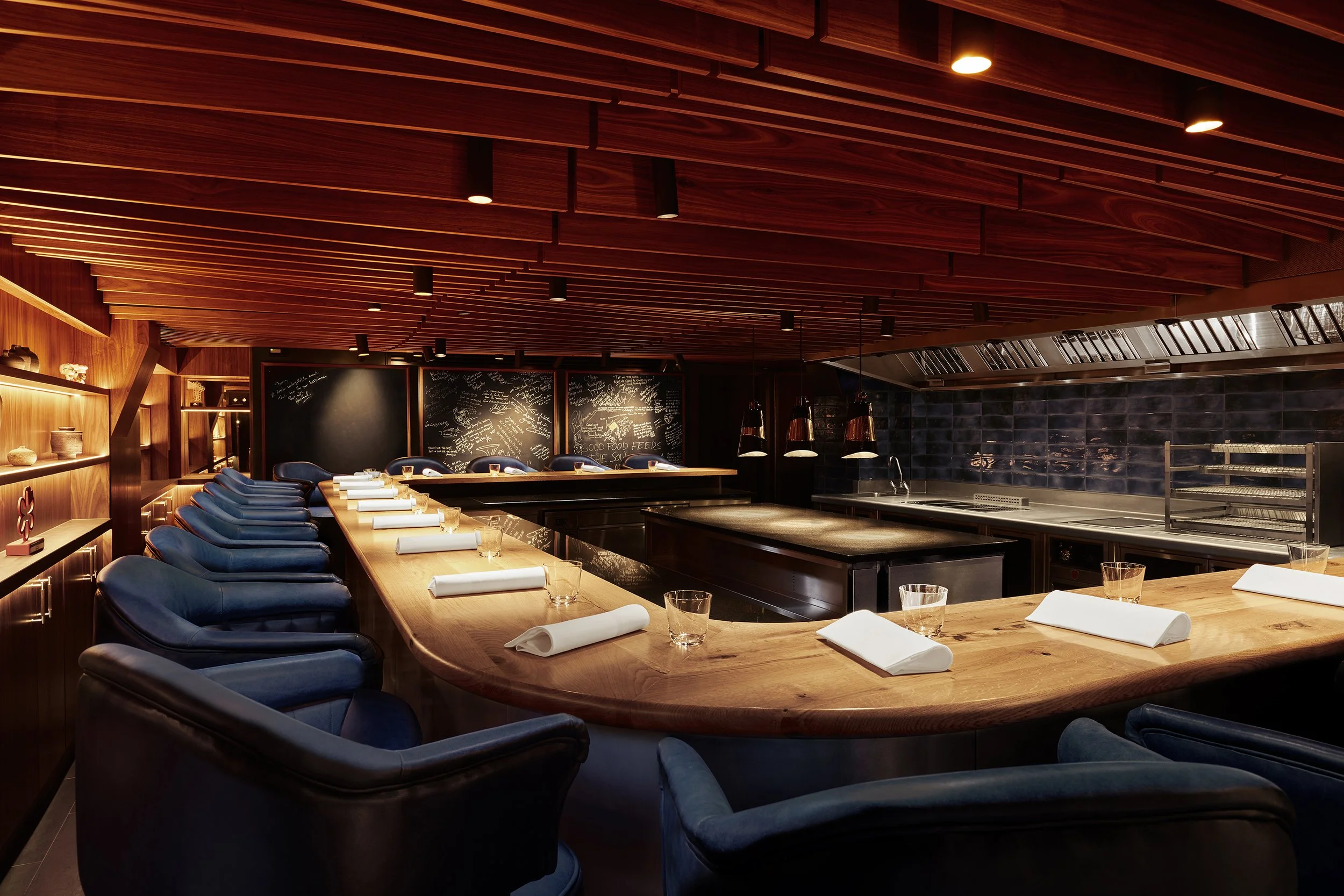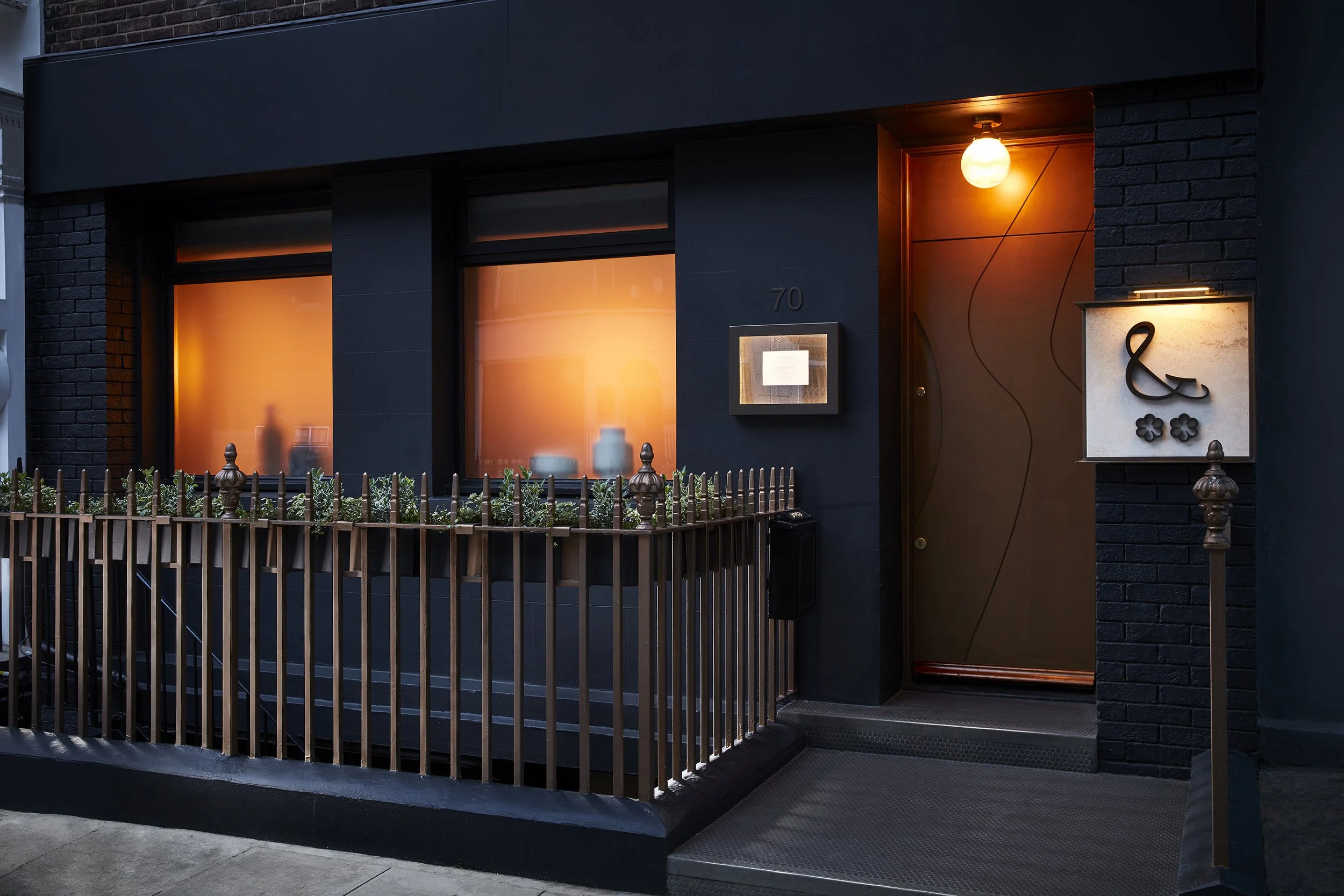Legacy and Friendship: James Knappett & Sandia Chang on Reuniting with Domaine Chapel and Krug at Kitchen Table
This November, Kitchen Table in Fitzrovia will host a rare four-night collaboration with Domaine Chapel and Krug Champagne - a reunion twenty years in the making. Two couples, two generations of friendship, and one shared story of heritage and hospitality will come together to celebrate the enduring legacy of the late Chef Alain Chapel, one of France’s most influential culinary figures.
For chefs James Knappett and Sandia Chang, the partnership with David Chapel and Michele Smith goes beyond gastronomy. It traces back to 2004, when all four met at Thomas Keller’s Per Se in New York. Now, decades later, they reunite in London for a menu inspired by Chapel’s original notebooks - reinterpreted through British ingredients, friendship, and a shared philosophy of respect for craft and nature.
Setting the Scene
This collaboration reunites two couples whose friendship spans more than two decades. How did that connection at Per Se come about — and what does it feel like to come together again for these dinners?
Sandia: Michele Smith and I met at Per Se in 2005 and immediately became the best of friends. She even helped me arrange a few “spontaneous” meet-ups with James before we started dating. When James and I got married, Michele was my maid of honour.
Michele’s dream was always to marry a French man and make wine someday, and she somehow managed to not only marry a French man — but the son of Alain Chapel! We’ve always stayed close through the years, our careers, and our growing families. To be reunited to collaborate and work together again feels incredibly exciting — and strangely, it also feels like it was just yesterday we were all at Per Se.
Revisiting a Legacy
Alain Chapel’s cooking has had a profound influence on modern gastronomy. How did you approach the process of reinterpreting his dishes for Kitchen Table — balancing tradition with your own voice?
James: Out of respect for David and his father, it was very important to keep the dishes and recipes as true to their original form as possible. But we wanted to express them through British ingredients — staying true to what we have here on our doorstep.
We looked back through dated menus from the same time of year that Chef Chapel cooked and used those as the foundation for our own. It was about honouring his approach, but letting the season and our ingredients guide us.
The Spirit of Collaboration
Collaborations in hospitality often go beyond food and wine — they’re about shared philosophy. What do you and the Chapels most connect on, creatively or personally?
James: First and foremost, it’s friendship. But that friendship has always been grounded in a shared love for hospitality — whether that’s cooking, making wine, or serving guests. We all share a deep respect for tradition, even though we use modern tools.
At Kitchen Table, we still cook traditionally — no sous vide, no foams — just seasonal cooking that lets nature, our butchers, and our fishermen tell us what to cook. The Chapels share the same mindset. Their wines are made with minimal intervention, always guided by the land and the community around them.
And how does working with Krug deepen the sense of heritage within this project?
Sandia: Olivier Krug’s father and Alain Chapel were “birth-year twins,” as they used to call themselves. They shared the same birth year, and many Krug family functions and celebrations were held at Alain Chapel’s restaurant.
David showed us notebooks where his father had written menus for the Krug family. Bringing Krug into this collaboration just felt natural — their friendship mirrors our own.
The Kitchen Table Perspective
Kitchen Table has always been about intimacy — guests sitting at the counter, engaging directly with the cooking. How does that setting shape this collaboration?
Sandia: This event is really about bringing a story to life, and the intimacy of Kitchen Table is the perfect setting to tell it. Everyone dines together in a communal space, and that naturally creates a sense of friendship, community, and shared passion.
After more than a decade, how do you see Kitchen Table’s role in London’s dining culture today?
James: When we opened, the idea was to create something honest — a space where cooking, ingredients, and people were all part of the same conversation. London’s dining scene has evolved a lot, but that core idea still resonates.
We’ve never chased trends. Our focus is on purpose — showing how British produce can be elevated through technique, while staying intuitive and grounded. The chef’s table has always been about connection: breaking down the barrier between chef and guest.
Craft, Ingredients & Inspiration
The menu bridges Chapel’s classic French dishes with British produce. How did you go about sourcing and translating ingredients to honour both origins?
James: We relied on our trusted network of UK suppliers and worked closely with David Chapel to bring the dishes to life in a way that honours his father’s memory.
Revisiting those classic French techniques — especially the intricacies of sauces — was something I really enjoyed. It’s been a reminder of how timeless great cooking can be.
Personal Reflections
This collaboration feels deeply personal — rooted in friendship, memory, and shared values. What does it represent to you on an emotional level?
Sandia: For us, this one’s really personal. It’s not just a collaboration — it’s a reunion. We’ve all grown up a bit since our Per Se days — new countries, families, and projects — but the respect and friendship have always stayed the same.
To come back together in London, with all that history between us, feels emotional. It’s like everything we’ve learned along the way has led to this moment, where we get to tell that story together.
James: It’s about respect and friendship. Working with David and Michele brings back a lot of memories, but it also reminds me why I started cooking in the first place. These dinners aren’t about recreating Alain Chapel’s dishes — they’re about capturing his spirit. If he were sitting at the counter, I’d hope he’d feel we’d done his legacy justice.
Looking Ahead
The hospitality world is always evolving. How do collaborations like this influence your view of fine dining’s future?
James: Collaborations have always shaped how I cook. Every restaurant I’ve worked in has influenced my approach in some way. You step into someone else’s world, see how they do things, and take something with you.
But no matter what you learn, it always comes back to what we do here: keeping things British, seasonal, and pure. The industry changes constantly, and collaborations push you to adapt — they keep you sharp.
Working closely with others also keeps you grounded. Sandia’s always there to challenge me — in the best way — and that constant back-and-forth keeps fine dining alive. It’s about refining, not repeating.
What does “legacy” mean to you — both as chefs and as custodians of an evolving culinary culture?
Sandia: For me, it’s about memories and experiences. In my family, those were always more important than things. I’d like to hand down a celebration of food and wine to the next generation — starting with our kids, who we celebrate everything with.
